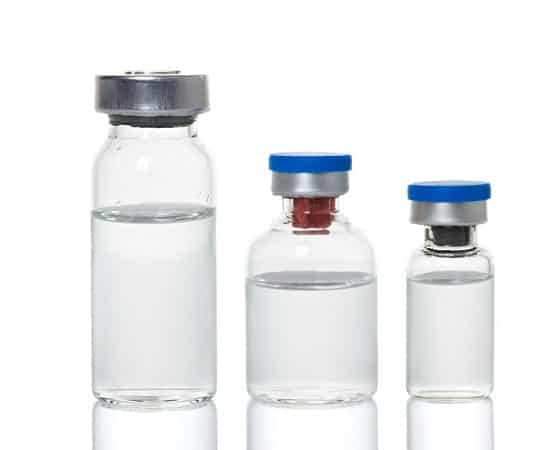Is Vivitrol, called the Anti-Addiction Shot, the “Next Big Thing” in opioid/heroin addiction treatment? A brand-new study just published in The Lancet has concluded that Vivitrol is slightly more effective at preventing relapse than Suboxone, one of the established go-to pharmaceutical options used for the treatment of a dependence on prescription opioids or heroin. During the six-month study 4% fewer patients relapsed when given Vivitrol, compared to those given Suboxone, 52% versus 56%. This is the first American research to compare the two anti-craving medications head-to-head, although a smaller Norwegian study was published in October 2017 in the Journal of American Medicine. The conclusions reached in both studies were the same – because they are roughly equivalent in effectiveness, both medications should be considered as treatment options for opioid dependency. The lead investigator of the American study, Dr. John Rotrosen, says, “The main finding in my view is the relatively equivalent safety and effectiveness of these two medications… This gives patients the freedom to choose a treatment approach that best suits their lifestyle, goals and wishes.” Dr. Rotrosen is a psychiatry professor at New York University’s School of Medicine. Likewise, the study’s main author, Dr. Joshua Lee, also a professor at NYU, concludes, “We’ve had trials of each one, but not together. Once people were on either one, they did reasonably well over time.” Finally, Dr. Nora Volkow, the Director of the National Institute on Drug Abuse, says, “This study removes a barrier, the belief that (Vivitrol) was not as good a medication.” The comparative study was funded by the NIDA.
First Things First – What Is Vivitrol?
Vivitrol is the brand name of a once-monthly extended-release injectable formulation of naltrexone, a prescription medication that fully blocks the effects of opioid painkillers, heroin, and alcohol. When given a Vivitrol injection, abusers of any of these three substances will no longer experience the hoped-for “high” for the next four weeks. By removing the pleasurable and intoxicating effects of these substances, naltrexone thereby also removes the motivation use or drink.
How Does Vivitrol Work?
Opioids and other substances of abuse are addictive because they trigger the release of massive amounts of dopamine, the neurotransmitter associated with pleasure, motivation, learning, and memory. In other words, the addict’s brain learns to associate the memory of how use results in a pleasurable reward – a euphoric high. As motivation to continue using, the brain eventually stops producing dopamine unless the abused drug is present. Within a very short time after the substance is discontinued, the person goes into withdrawal, and continued drug cravings can last for weeks or even months. The persistence of these cravings is often the reason why a recovering opioid addict or alcoholic relapses. This is why Medication-Assisted Treatment (MAT) is the preferred strategy during opioid rehab. Certain medications help ease the overpowering urge to use. Vivitrol and other naltrexone medications are opioid antagonists, meaning they bind the brain’s opioid receptors and block the effects of heroin, OxyContin, Vicodin, fentanyl, and other opioids drugs. Because of Vivitrol’s unique formulation, this barrier lasts for a month at a time. Of special relevance, Vivitrol is:
- Non-addictive
- Does not result in a physical dependency
- Does not trigger the release of dopamine.
Acceptance of Vivitrol as an Effective MAT Option
Use of Vivitrol is expanding rapidly. Between 2015 and 2016, Vivitrol sales spiked 70%. And, during the first 3 months of 2017, sales of the medication were 33% greater than during the first quarter of 2016 For even greater perspective, since 2011, Vivitrol sales have increased by 600%.
How Effective is Vivitrol?
According to a six-month double-blind clinical study among opioid-dependent patients that compared outcomes of treatment using Vivitrol and counseling versus treatment with a placebo and counseling:
- 90% of patients given Vivitrol experience opioid-free weeks, compared to 35% of those receiving a placebo.
- 55% reduction in reports of opioid cravings, versus just 3%.
- Compared to placebo patients, individuals given Vivitrol were 17 times less likely to physically relapse.
- Vivitrol patients stayed in opioid addiction treatment for an average of 168 days, compared to 96 days for those given a placebo.
- In one study, 67% of naltrexone patients completed opioid rehab. Even better, when naltrexone was used in combination with clonidine, the completion rate jumped to over 85%.
- Alcohol – Reduces the frequency of heavy drinking, the number of drinking days, and the amount of alcohol consumed.
- Cocaine – The Journal of Pharmacology and Experimental Therapeutics published another study calling naltrexone a “promising treatment for prevention of cocaine relapse”.
Remaining abstinent, managing cravings, and staying in opioid drug rehab is crucial, especially during early recovery, when the person’s sobriety is still fragile. Harry Powazek, Superior Court Judge in San Diego County, has this to say about Vivitrol – “For most people, the cravings are diminished substantially where they’re at a stable place emotionally to take on the benefits of the counseling, the meetings, and the structure this program has to offer. They don’t feel they need to run out and use.”
Listing the Other Benefits of Vivitrol
Compared to other MAT options, Vivitrol has other advantages:
- It seems safer than Suboxone. This is because Vivitrol can’t be abused or misused like Suboxone can.
- It’s not addictive (Suboxone can be) and you can’t overdose on it. WARNING: You could overdose on Opiates while on Vivitrol though.
- Because it is administered as an in-office injection by a physician, the potential for misuse is eliminated. Methadone, on the other hand, has an extremely high abuse potential. Even “abuse-deterrent” buprenorphine/naloxone combinations can be diverted for intravenous use.
- Since only one monthly dose of Vivitrol is needed, staying compliant with a MAT schedule is easier. This is a major advantage over daily trips to the methadone clinic or the need to take Suboxone every day.
- ANY doctor can prescribe Vivitrol. Methadone is only dispensed at designated suboxone clinics, and Suboxone doctors need special training and certification, and are also limited by the government as to how many patients they are allowed to treat for opioid dependence.
This distinction is particularly important, because it means that the potential availability of MAT using Vivitrol could be greater than it is for other medications. This could be critical for patients in rural areas or where Suboxone doctors have waiting lists. How hard is it to find a Suboxone doctor? Only about 1 in 30 American physicians have the necessary credentials to prescribe medications containing buprenorphine. One state only has 14 providers. Even after obtaining their certification, Federal law limits them to just 30 opioid addiction patients during the first year.
- Because Vivitrol can lower a person’s opioid tolerance, it promotes an “abstinence only” approach to recovery. This is in stark contrast to Opioid Replacement Therapy (ORT) with buprenorphine or methadone. ORT has a primary goal of “harm reduction”, rather than total abstinence and sobriety.
- Some research suggests naltrexone medications may also help with pornography addiction, kleptomania, compulsive hair-pulling, problematic gambling, and self-injuring behaviors.
What are the Disadvantages of Vivitrol?
There are four areas of concerns when it comes to Vivitrol. FIRST, the fact that Vivitrol displaces other opioids from the brain’s receptors means that anyone wishing to use the medication has to first detox from all other opioids. In fact, it is recommended that a person remains opioid-abstinent for 7 to 14 days before taking Vivitrol. Because of this a prospective Vivitrol patient must first undergo a naloxone challenge test. If they are given naloxone in exhibit symptoms of opioid withdrawal, then they haven’t been opioid-free long enough to safely begin MAT with Vivitrol. Buprenorphine patients, on the other hand, can commence MAT immediately, without the need for opioid detox. For some, this can be a major stumbling block. During the head-to-head comparative study, 28% of Vivitrol patients dropped out during detox, before they were even given their first dose. Only 6% of participants in the Suboxone group quit before their initial dose. SECOND, anyone accustomed to MAT using methadone, Suboxone, or pure buprenorphine will have to adjust to total abstinence, rather than a reduction in use. Even low opioid dosages can trigger immediate withdrawal. And if, an addict is desperate enough to take higher doses of opioids in an attempt to overcome harsh withdrawal symptoms, it is still possible to overdose – to the point of injury, coma, or even death. THIRD, Naltrexone has been associated with severe liver damage. This may disqualify some people who are already suffering liver problems, such as might be caused by a long history of chronic alcohol abuse. FINALLY, Vivitrol is far more expensive than other MAT drugs. A 30-day supply of Suboxone cost approximately $100, while a single Vivitrol injection can be as much as $1200.
The Use of Vivitrol within the Criminal Justice System
There is a reluctance within the correctional system to use ORT, which some view as a “crutch” that prolongs addiction, rather than a viable means of treatment. Because total abstinence from opioids is only option for inmates receiving medications containing naltrexone, Vivitrol is perceived much more favorably by correctional officials. At least 200 correctional facilities in the United States impose lighter sentences on any opioid-dependent prisoners who voluntarily agree to MAT utilizing Vivitrol. And, when county and city jails and drug courts are included, the number of participating entities more than doubles. Right now, there are nearly 450 Vivitrol-focused MAT programs sponsored by courts and correctional facilities active across 39 states. By comparison, there are very few correctional facility-sponsored methadone programs, even though it is the most-established opioid dependence medication. Besides the fact that ORT isn’t abstinence-focused, methadone also has a particularly high abuse potential, especially within the confines of a correctional facility.
Why Is the Comparative Study So Important?
Per a recent New York Times article, drug overdose deaths in America are still rising at a record pace. In 2015, the United States suffered 52,404 overdose drug deaths – the most in history. However, in 2016, there was another 22% increase. Last year, approximately 64,000 people in this country died because of fatal drug overdoses. In ONE year, drugs killed more Americans than the entire Vietnam War. And right now, it’s getting worse. It is estimated that drug overdoses, will claim the lives of 71,600 people during 2017. It is all being driven by the ongoing opioid epidemic. Two-thirds of all overdose deaths involve opioids. That equates to 43,000 lost lives in 2016. The biggest factor in this public health emergency is the skyrocketing abuse and overdose rates involving heroin and powerful synthetic opioids such as fentanyl.
- Between 2002 and 2016, heroin-related overdose deaths increased from 2089 to 15,446 – an increase of almost 740%.
- Between 2015 and 2016, deaths involving synthetic opioids, more than doubled – from 9945 to 21,405.
- According to the American Society of Addiction Medicine, there are approximately 2.6 MILLION people in America with a Substance Use Disorder (SUD) involving prescription opioid painkillers or heroin.
There is an urgent, pressing need for any solutions that can reduce the number of opioid addicts, and, by extension, save thousands of lives annually. Currently, only about 1 out of every 10 individuals struggling with addictions to alcohol, prescription medications, or illicit drugs are getting proper treatment. Dr. Lee says, “We’re not doing a good enough job in this country of getting people into treatment and offering them these types of medications. So we’re just going around undertreating the opiate epidemic.” This study is important because it verifies that Vivitrol—like Suboxone, buprenorphine, methadone, and other MAT drugs—can be an effective solution that should be made available to the millions of addicts still in need.
What Does This Mean for the Future of Opioid Addiction Treatment?
“Addiction medicine physicians are hungry to get data, especially from head-to-head comparisons like this one.” ~Dr. Joseph Garbely, an addiction specialist based in Pennsylvania The disease of addiction manifests differently in every suffering. This means that treatment has to be specific to the individual, because what works for one person may not necessarily work for another. This means that when more treatment choices are made available, it becomes that much more likely that someone in desperate need will get the help that they need. And, because MAT is the most promising tool available to treatment professionals, any addition to the available pharmacological options should be welcomed – especially when their effectiveness is supported by evidence-based clinical studies. Many rehab programs do not support ORT. The idea of reducing harm by managing opioid misuse runs contrary to their mission of recovery through abstinence. Vivitrol addresses that objection. Because it is non-addictive and does not produce intoxication, Vivitrol gives rehab programs another treatment tool.
What’s the Right Choice – Suboxone or Vivitrol?
Because it is far more available than Suboxone, Vivitrol has the potential to help many more people struggling with opioid or alcohol dependence. Also, Vivitrol promotes the safest end-goal – total, evidence-based sobriety, rather than harm reduction. It only makes good sense to seek treatment involving both counseling and MAT that utilizes Vivitrol for anti-craving support. Bear in mind, however, that because of Vivitrol’s limitations, a person choosing this option should check into a reputable and accredited medically-supervised detox program. They will need extra support, structure, and care during this first rocky period of abstinence. Then, after successfully completing detox, the person can confidently move forward in treatment. “These findings should encourage clinicians to use medication protocols, and these important results come at a time when communities are struggling to link a growing number of patients with the most effective individualized treatment,” concludes Dr. Volkow.


